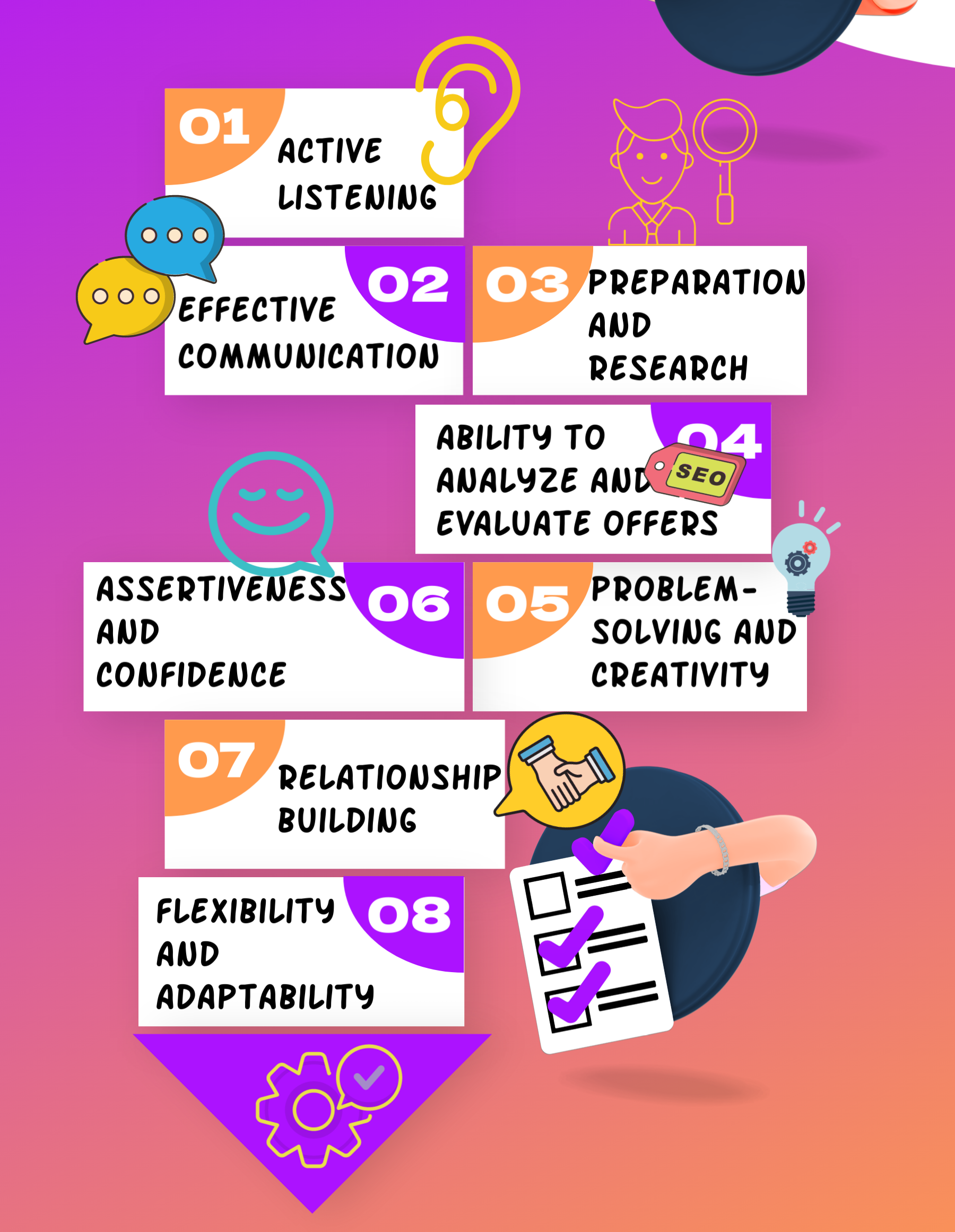Preparation and Research
One of the most crucial negotiation skills is preparation. Before entering any negotiation, procurement professionals must research the market, understand industry standards and trends, and gather relevant data to support their arguments. This preparation helps them enter the negotiation with confidence and credibility, leading to better outcomes.
Example: When negotiating a contract for new machinery, the procurement professional does thorough research on the current market prices, competitors' prices, and the supplier's reputation. They use this information to negotiate a fair price for their organization while also building a long-term relationship with the supplier.
Ability to Analyze and Evaluate Offers
Negotiation is a give-and-take process, and it is essential for procurement professionals to analyze and evaluate offers from suppliers carefully. This involves understanding the value of each offer, identifying any potential risks or hidden costs, and considering how it aligns with their organization's needs and goals.
Example: During a negotiation for a new software license, the procurement professional carefully analyzes and evaluates each offer, taking into consideration not only the cost but also the level of support, training, and customization options. They choose the offer that provides the best value for their organization in the long run.









